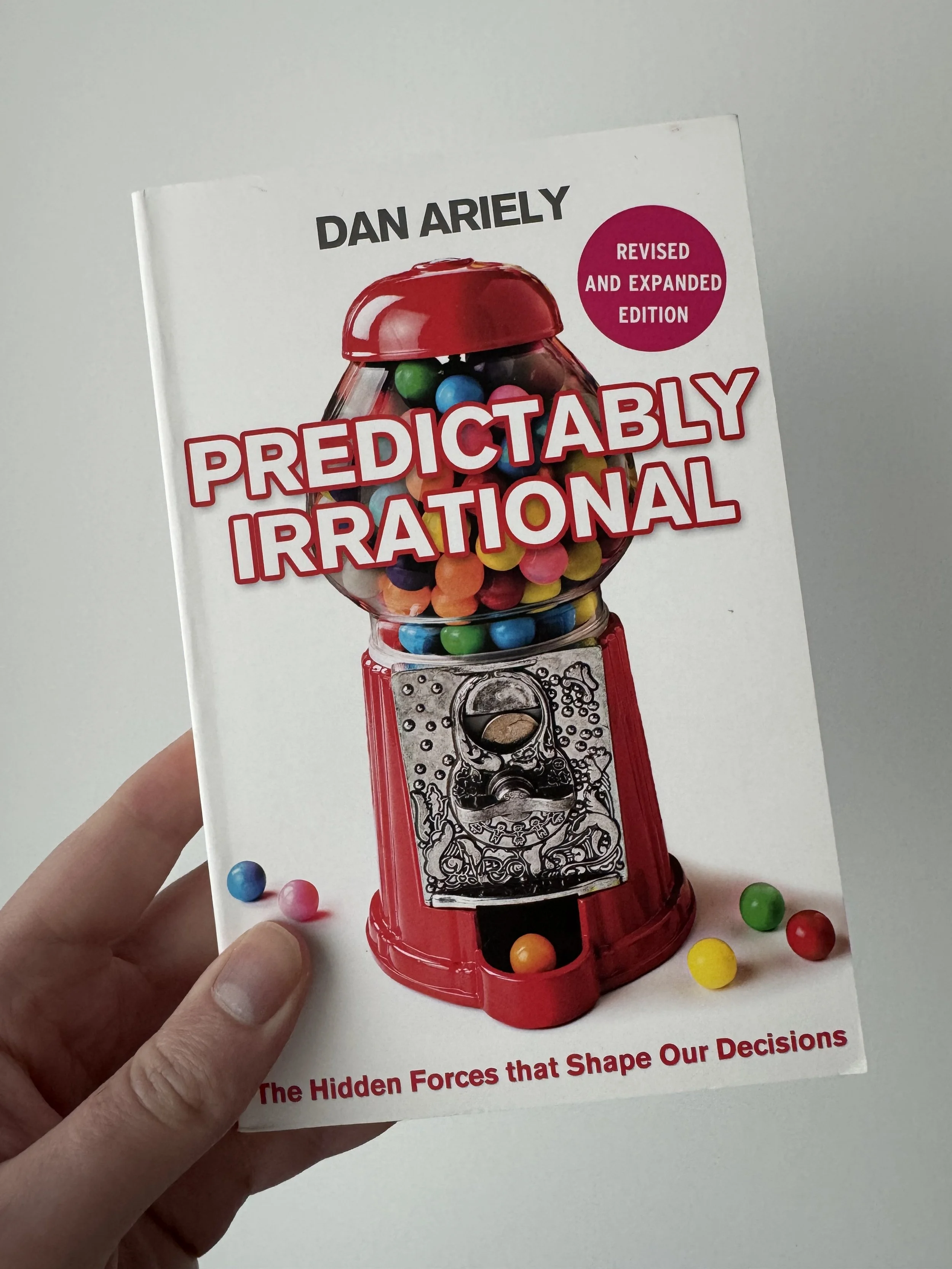Predictably Irrational
The Hidden Forces that Shape Our Decisions
Dan Ariely
Dan Ariely’s Predictably Irrational invites us into the quirky terrain between logic and habit, using lively experiments and vivid anecdote to reveal how our choices, time and again, defy the “rational human” assumption at the heart of classical economics.
Ariely opens with the decoy effect and anchoring, showing how our estimates of value skew wildly depending on context, reminding us that what seems like choice may just be illusion. He then traces why the label “free” triggers an almost hypnotic response; our emotional brain momentarily eclipses rationale.
For anyone in a school leadership conversation, the chapters on self‑control and procrastination ring especially true: our calm, rational intentions often buckle under emotional pressure, but Ariely shows how deadlines, public commitment and structural nudges can get us across the line.
A particularly intriguing insight relates to honesty and cheating he calls the “fudge factor.” Most people cheat just enough to benefit themselves, but not so much that it tarnishes their self‑image, until a small moral reminder shifts that balance.
Ariely’s storytelling is breezy, witty, and never over‑academic, yet his ideas stick. He doesn’t preach. Instead, he sensitises us to the systematic patterns in our irrationality, inviting reflection: What habits might we unknowingly reinforce in our classrooms or staffroom cultures? What “invisible nudges” could we redesign for better, more thoughtful behaviour?
This is a book that quietly reshapes how you notice everyday decisions, whether you’re a teacher designing choice‑based tasks, a leader crafting culture, or a support staff member thinking about the whole system. It doesn’t hand you answers, but it offers a lens. One I think is worth sharpening.
